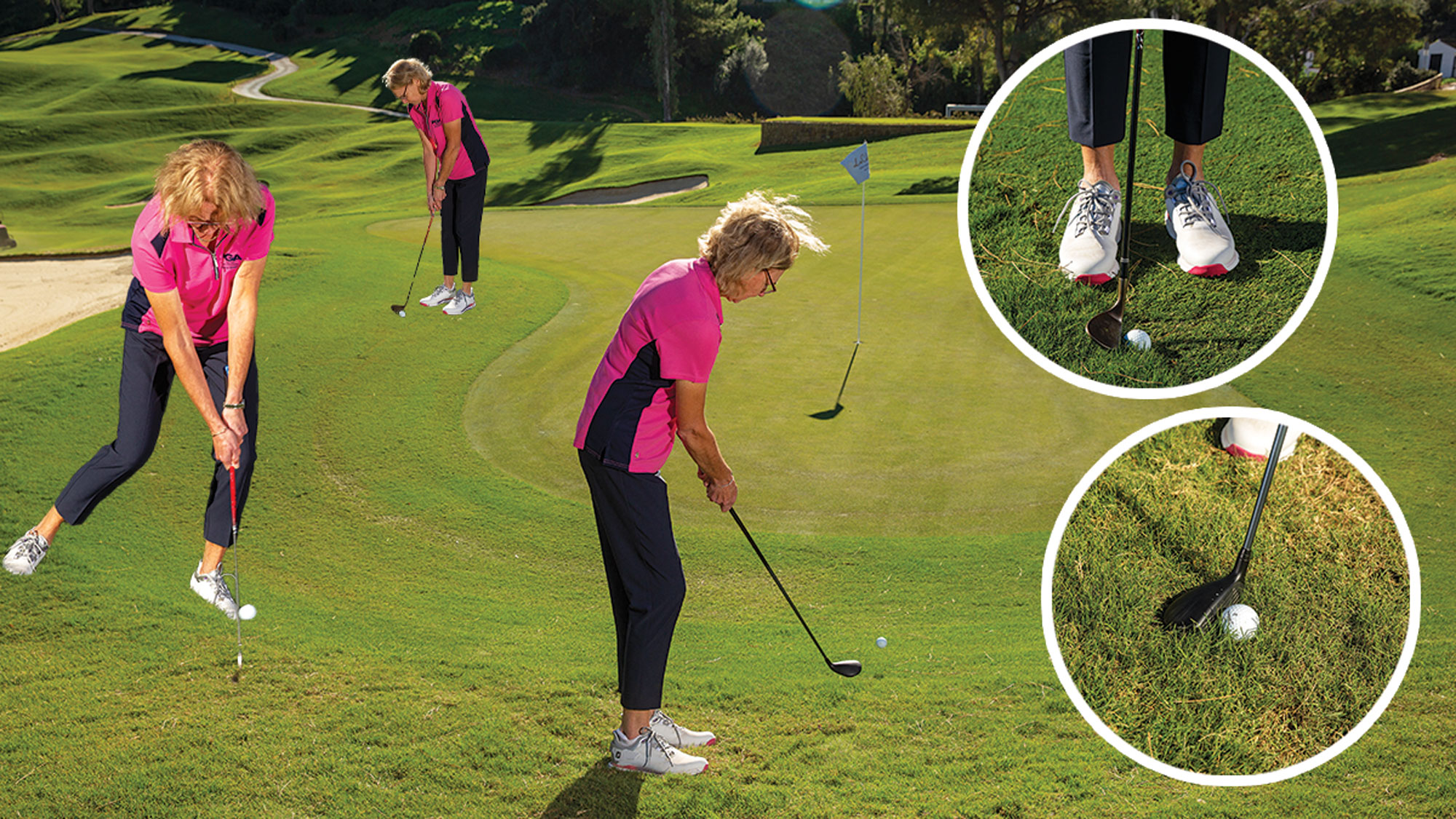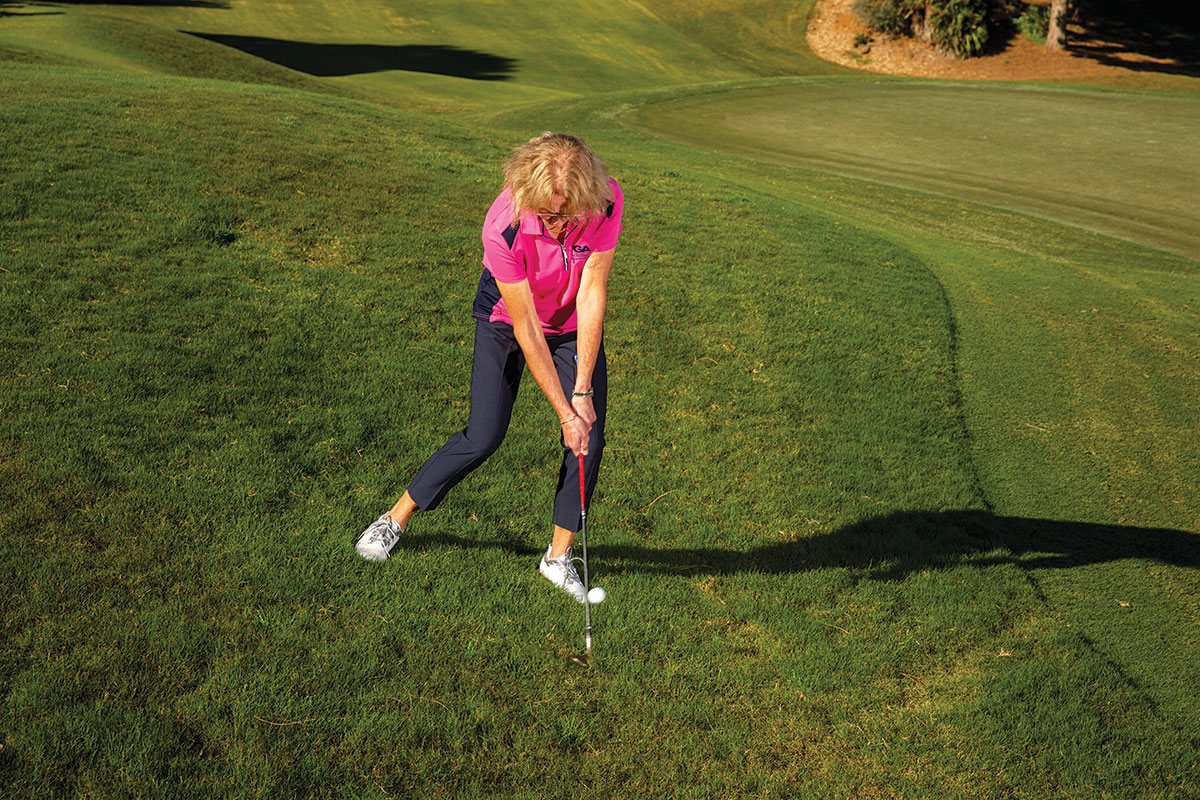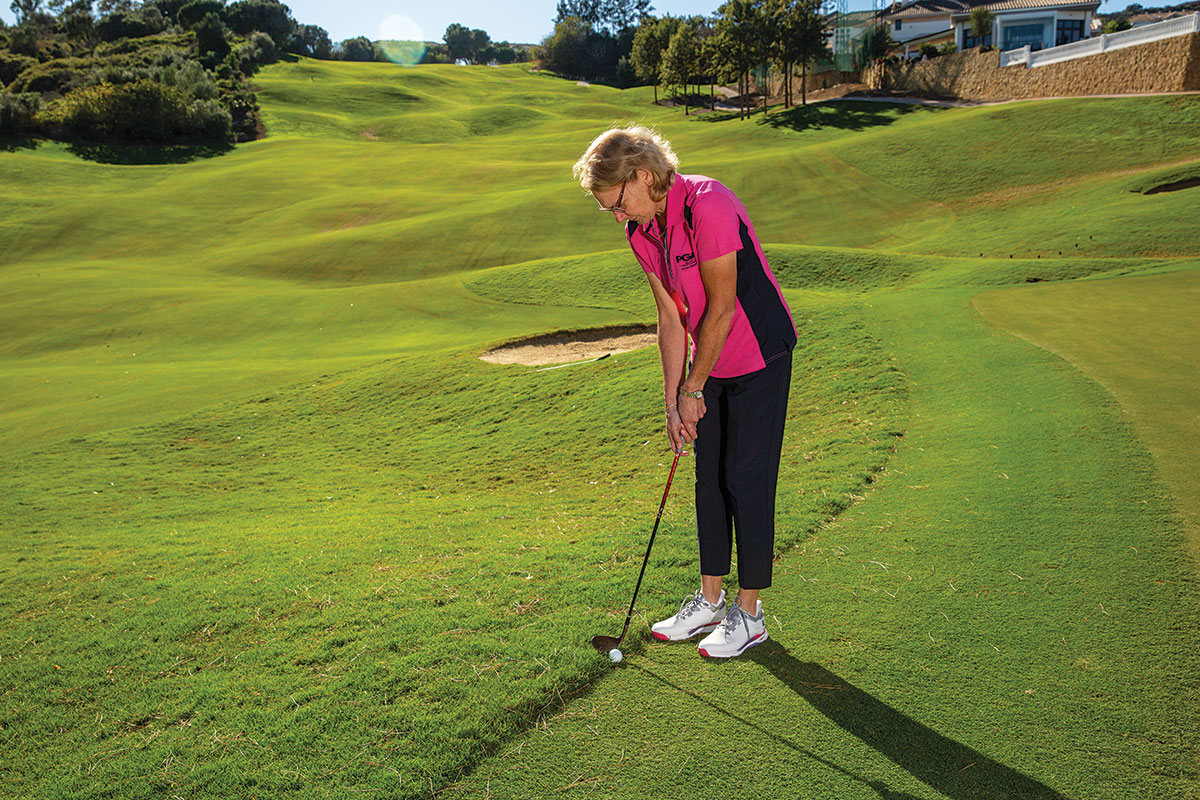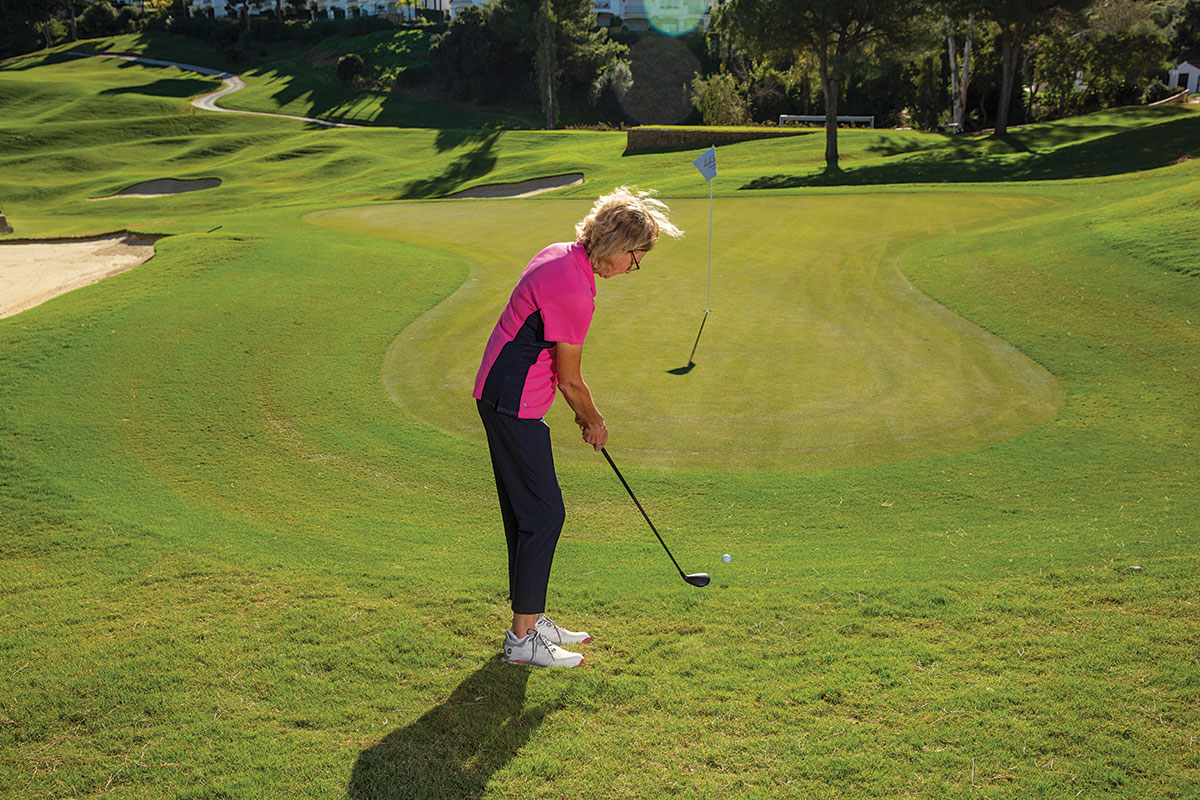
So many amateur golfers neglect their short game, leading to precious shots being frittered away and scorecards being destroyed in the process.
Those that do focus on their short game will work on the best bunker tips or dive deep into how to hit chip shots effectively, but it's also important to remember that creativity and variety is paramount around the greens.
Getting a short game lesson is a great way to tidy up your play, but for those who want a quick fix in time for the weekend - we have a real treat for you!
Sarah Bennett is one of the most accomplished PGA coaches in the industry, and in the article below she shares three simple shots that any amateur golfer can use to get up and down more often...
3 Short Game Shots To Save You Strokes Around The Green
As a former Ladies European Tour player, Sarah Bennett knows more than most about how important a solid short game is - and the impact it can have on a player's success or failure on the course.
With the line between a great round and a poor one being so fine, amateur golfers really can't afford to leak shots around the green. Taking a proactive approach to improving this crucial area is key, but how can you see results quickly?
Sarah Bennett has served as PGA Captain and was also named an Honorary Member for her services to the game, so who better to ask for tips on how to tidy up your short game in time for the 2025 golf season...
1. Downhill Lies
Mastering slopes is so important in the short game. With a downhill lie, the ideal set-up position requires a wide base and a considerable amount of knee flex. Aim fractionally to the left, with your weight on your lead side.
A central ball position with the sternum sitting directly above will help you to deliver the club at the required low point. Gripping down the handle closer to the shaft will steepen the angle of the backswing, allowing the wrist hinge to occur more easily.
It’s worth turning the top hand more towards the target (weakening it) to maintain a square clubface. Keep your weight on your lead leg (‘hinge and hold’) throughout the shot. The ball will roll out more so take this into consideration.

2. The Belly Wedge
I’ll play this shot when the ball is up against the collar. With a standard chip or putt, it’s easier for the club to snag. Using a sand wedge or pitching wedge, the idea is to strike the equator of the ball with the leading edge.
Take your putting grip and stand in an upright position closer to the ball. The stroke should be level back and through with no rise angle to help the club avoid the collar and set the ball rolling out towards the hole.

3. The Hybrid Chip
The versatility of the hybrid comes into its own where the apron grass is slightly thicker, or the ball has just nestled into the greenside fringe grass. It can be the perfect choice of club due to the shape of the sole and additional loft compared to a putter.
I will hold the club as I would my putter (reverse overlap for me). Due to the length of the hybrid, stand a little further away. Keep the same ball position and weight distribution, trying to simply replicate a similar stroke to that of your putting style.

How Many Shots Does It Take The Average Amateur Golfer To Finish From Inside 50 Yards?
According to the latest Shot Scope data, the average golfer takes somewhere between two and three shots to finish the hole from inside 50 yards.
A scratch golfer takes an average of 2.45 shots to get the ball in the hole from this distance, whereas at the other end of the spectrum a 25-handicapper takes 3.01 shots.
A 5-handicapper (2.55), 10-handicapper (2.68), 15-handicapper (2.78) and 20-handicapper (2.86) all see a marginal rise as we head towards the top end of the handicap range, creating a trend that demonstrates the importance of a solid short game on a player's scoring.







